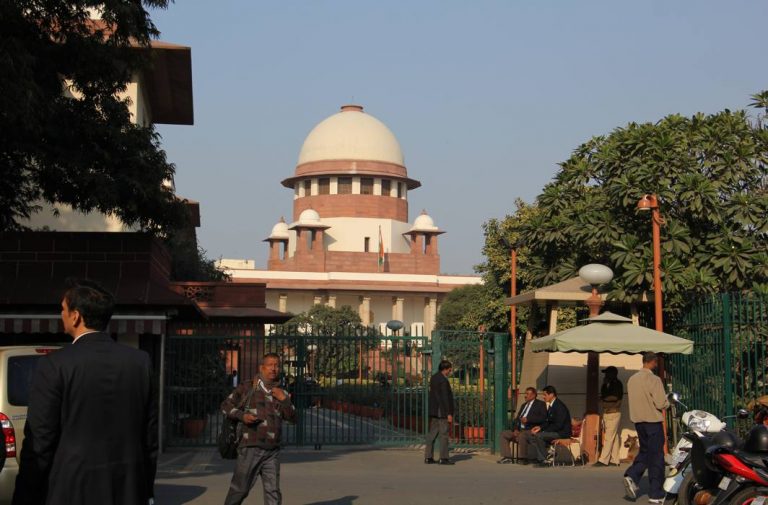
Above: Supreme Court
The apex court has said that the stay granted in civil or criminal cases will not extend beyond six months, except in rare situations
~By Rajesh Kumar
In a significant verdict that will go a long way in ensuring quick redressal of cases and obviate several strategies adopted by the accused to delay trial by seeking a stay from courts, the Supreme Court has fixed the duration of stay in civil and criminal cases. It has ruled that it shall not exceed more than six months, except in exceptional circumstances and that too through a “speaking order”.
A bench comprising Justices AK Goel, R Nariman and Navin Sinha made the observation while responding to the issue regarding the jurisdiction of the High Court in entertaining the petition against framing of charges in the Prevention of Corruption Act and granting stay in such matters.
The Court held that “to give effect to the legislative policy and the mandate of Article 21 for speedy justice in criminal cases, if stay is granted, matter should be taken on the day-to-day basis and concluded within two-three months. Where the matter remains pending for longer period, the order of stay will stand vacated on expiry of six months, unless extension is granted by a speaking order showing extraordinary situation where continuing stay was to be preferred to the final disposal of trial by the trial Court. This timeline is being fixed in view of the fact that such trials are expected to be concluded normally in one to two years.”
The Court clarified that high courts can take up such matters under Sections 397 or 482 or those invoking Article 227 of the Constitution. However, it observed that the concerned high court must ensure that there is quick disposal of a trial. It said that the challenge to an order of charge should only be taken up “in a rarest of rare case only to correct a patent error of jurisdiction and not to re-appreciate the matter”. And once the challenge is taken up, “the matter must be decided on day-to-day basis so that stay does not operate for an unduly long period”. It further added that “the decision may not exceed two-three months normally. If it remains pending longer, duration of stay should not exceed six months, unless extension is granted by a specific speaking order, as already indicated.”
Referring to the “speaking order”, the bench said: “The speaking order must show that the case was of such exceptional nature that continuing the stay was more important than having the trial finalised. The trial court where order of stay of civil or criminal proceedings is produced may fix a date not beyond six months of the order of stay so that on expiry of period of stay, proceedings can commence unless order of extension of stay is produced.”

